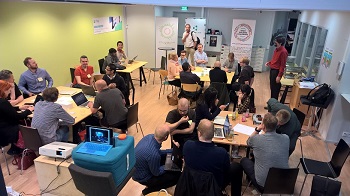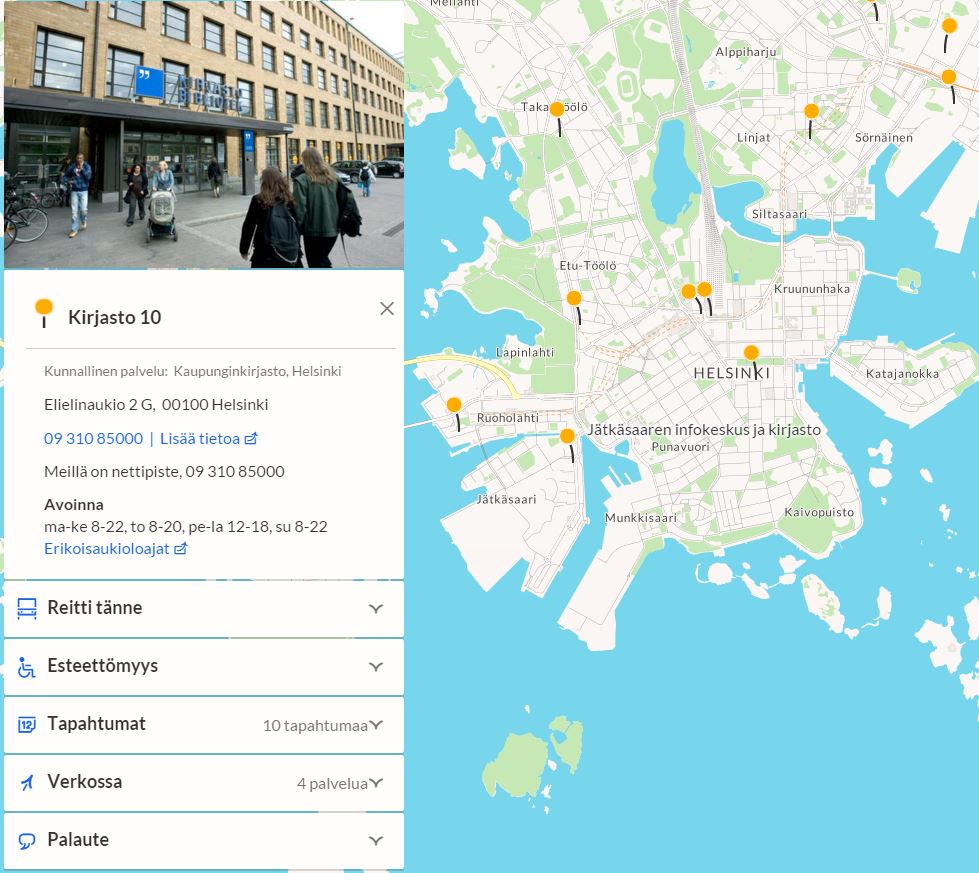5th anniversary of open data pioneer Helsinki Region Infoshare
City procurement data, historical aerial photos and postal code areasare among the most downloaded open data on the Helsinki Region Infoshare service.
The usage statistics of Helsinki Region Infoshare (HRI) reveal that the service’s most downloaded dataset of all time are the procurement data files released by the City of Helsinki. The pioneering open data service marks its fifth anniversary in May.
The Helsinki procurement data contains tens of thousands of transactions made by city departments, from stationary purchases worth less than one euro all the way to the city’s half-billion-euro contribution to the health care operations of the Helsinki and Uusimaa Hospital District. The cities of Helsinki, Espoo, Vantaa and Kauniainen today publish all their procurement transactions as open data on the Helsinki Region Infoshare website.
Launched in March 2011, the HRI service distributes municipal public data from the Helsinki Metropolitan Area cities for free use by anyone. One of the tasks of the HRI clearing house team at City of Helsinki Urban Facts is to assist the cities in opening their own data holdings.
”For the most part, the data produced by the cities is already public on the basis of the Openness of Government Activities Act. The aim of HRI is to make the opening of data part of the everyday activities of city officials. There is less and less need for the citizens to make specific requests to the cities to get the information they need, as the data is accessible online through the HRI service and open interfaces”, says HRI project manager Tanja Lahti.

Among those who make use of the data opened by cities are journalists, universities and application developers. In the spring of 2016, the most downloaded dataset of HRI is a file containing the boundaries of the Helsinki Metropolitan Area postal code districts. This type of geographic information is basic material required by the developers of various location-based web services. Previously such data has been subject to fees, but now the public administration offers the information produced with taxpayers’ money as open data for free use by everyone.
The number of visitors on the HRI website have grown steadily. At the moment, the monthly traffic amounts to approximately 9,000 visitors. There have been about one million pageviews and more than 67,000 downloaded open data sets.
Besides file downloads, open data can also be distributed by way of open Application Programming Interfaces (APIs), much valued by developers. An open interface allows you to retrieve data for your own application by making simple data queries.
”Open interfaces to information systems are the most efficient way to distribute constantly up-to-date data. In the Helsinki Metropolitan Area, such interfaces include Helsinki Region Transport’s route and schedule data as well as the Open Ahjo interface for the City of Helsinki decision-making data”, says Tanja Lahti.
The construction of open APIs to the cities’ information systems is only in its early stages. Helsinki, for instance, has over 800 information systems but so far just a handful of open interfaces. Open APIs are useful not only for application developers but also the city itself. HRI gives assistance to the cities in developing their open interfaces.

”An outstanding example of the use of open APIs is the Helsinki Metropolitan Area Service Map built by the cities in the capital area. The map shows 13,600 public services intended for the citizens, from day care centres to rug-washing piers and public artwork. The data behind the service map is retrieved through open APIs from a number of data sources opened by the cities”, explains Tanja Lahti.
When opened in 2011, HRI was the first Finnish open data service and one of the first of its kind in Europe. It has set the standard for other open data services in public administration and gathered many accolades. In June 2013, HRI won a European Union prize for public service innovation. The prize sum of EUR 100,000 was used to enhance the interoperability of the open datasets and to foster the growth of a local open data community.
Translator: Teemu Vass
